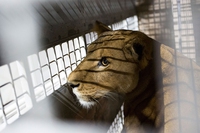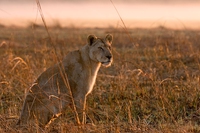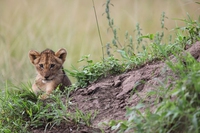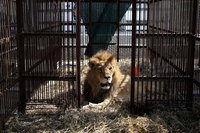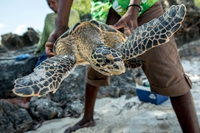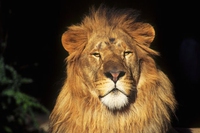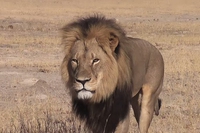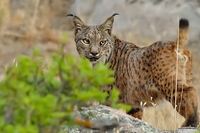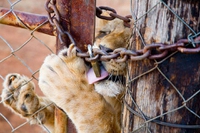
South Africa plans to ban captive lion breeding and bone trade
The South African government is clamping down on the controversial multimillion-dollar lion-breeding industry, thanks to pressure from activists.
The South African government is clamping down on the controversial multimillion-dollar lion-breeding industry, thanks to pressure from activists.
Tourist attractions, trophies to be hunted and skeletons to be sold. This is what lions are used as in breeding facilities in South Africa, where they’re not only mistreated but also endangered.
The Zambian government has put in place new plans with regards to a hunting ban concerning big cats in order to regulate wildlife populations. Big cats are found in all of the country’s national parks, but their numbers are depleting significantly. According to estimates, the country has between 2,502 and 4,668 lions. Too few big cats “The
The first lions were finally born in Akagera National Park after close to two decades. African Parks and the Rwanda Development Board were pleased to confirm the news on the 12th of May. The park now counts ten lions, including the three cubs that were spotted one day earlier next to their mother, Shema. The
After a life spent in captivity, they have finally gone back home. This is the success story of 33 lions rescued from South American circuses (24 from Peru and 9 from Colombia) and brought to South Africa. They probably longed for their homeland while performing – in chains – in unnatural, humiliating shows. The lions landed in Johannesburg in
Per la prima volta sarà possibile vivere in diretta l’incontro notturno con i leoni nel Masai Mara e il reinserimento di alcune tartarughe marine nell’Oceano Indiano.
The lions are back in Akagera National Park, a stunning 112,000 hectare park in the East of Rwanda. It is only a matter of time before the number of tourists visiting the reserve increases drastically: to the delight of community freelance guides. Realising that park guides were few in number, Akagera’s management team launched a
Sembra che Cecil, leone simbolo dello Zimbabwe, sia stato ucciso e decapitato da Walter Palmer, cacciatore di trofei statunitense.
Grazie ad un progetto della Ong African Parks sette leoni sono stati reintrodotti nel Parco nazionale dell’Akagera, in Ruanda.
L’Unione Internazionale per la Conservazione della Natura ha aggiornato la propria Lista Rossa delle specie minacciate, il leone è in pericolo, in ripresa la lince iberica.
